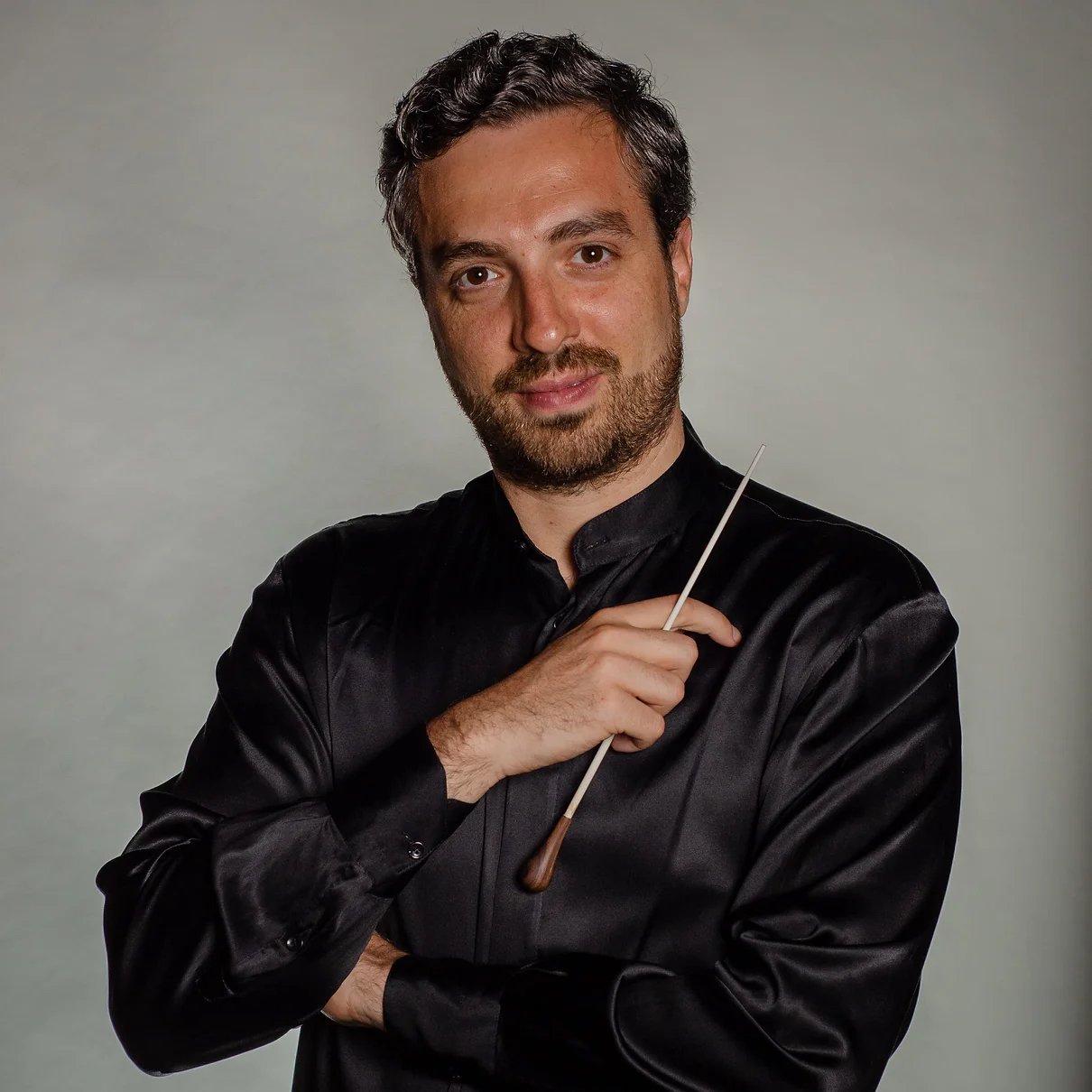Grace Notes
Volume 4
December 2024
Bach’s Brandenburg Concertos: An Interview With Filippo Ciabatti
DONNA REILLY
DR: The Brandenburg Concertos have become a much-loved old classic that people have heard hundreds of times. They’re familiar to us, but many of us don’t realize how individually complex they are, and what makes them so. Can you give us some idea of what we’ll be hearing?
FC: First of all, the Brandenburg Concertos are probably a bigger classic now than they were during the Baroque period. And, certainly, to present them all in one concert is a huge undertaking, because they’re difficult pieces. Incidentally, we will not be playing them in the order by which they are numbered.
What makes these concertos interesting is that each features different instruments, which really affects the way that audiences are going to hear them. It’s a relatively small ensemble, but the ensemble also changes significantly from concerto to concerto. So, for instance, there are Brandenburg Concertos that are more symphonic, so to speak, than others. They are more orchestral—like, for example, Concerto #4. And there are Brandenburg Concertos that are definitely more like chamber music—such as #6 or #5. So that really gives us a variety of things to listen to. There are concertos where the solo instruments are really virtuoso. For example, #2 is known as the trumpet concerto, in which the trumpet part is featured. It’s a part that was thought to be unplayable for many years, even on modern trumpets. There is actually a recording of it by a musician who is considered a real virtuoso. But, he thought it was so unplayable on the trumpet that he recorded one of the movements on saxophone. Finally, it became more standard, and people on the piccolo trumpet were starting to play it. And now there are some really fantastic people who can play it on the original Baroque trumpet!
Are we getting one of those?
Yes. We are getting one of those!
We know that many small ensemble groups don’t have conductors. How is that decision made?
Yes, sometimes the Brandenburgs are done completely without conductors, and sometimes they’re done partly with conductors. You know, it’s all in the way the conductor envisions the conception of the performance together with the musicians. But I decided that I will physically conduct only a few of them, not all of them. It’s not necessary when so much of the music is scored for virtuoso performances.
I’m particularly amazed by the fourth concerto for violin and recorders. Many of us don’t think of recorders as virtuoso instruments.
Right. And, actually, the fourth is the piece we’re going to close the program with, because I feel that it has a very important ending. I’ll definitely conduct that one. And, yes, one of the big issues with the Baroque flute, of course, was the balance; the original, wooden flute is difficult to balance with an orchestra, because it’s not a loud instrument. And, when they invented the modern flute, they didn’t use wooden flutes anymore, because they had to find a way for the instrument to project more. That’s why the recorder was abandoned and became sort of an instrument for people who wanted to start playing something easy. But the recorder, or the traverso (transverse flute)—both of these instruments—have an interesting history. Recorder virtuosos are really incredible musicians, and they actually have a wealth of repertoire to draw from.
And then there’s the concerto that’s basically for the harpsichord. Is that unusual?
Harpsichord concertos were written on many other occasions. But, of course, Bach always brings everything to the next level of difficulty…and then to the next level. And certainly the fifth concerto, the one you’re referring to, has become a real classic in the “absolute” literature.
So, how do you pick the musicians for these incredibly difficult parts?
Well, we have a very strong group of musicians that have established a habit of coming to play with us, and I trust them with this. I work with my colleague, Jason Fisher, who’s the contractor for the orchestra and a kind of personnel manager. And, you know, we actually had a conversation before I even agreed to do this project; we checked the availability of some players before we even committed to doing it, because we knew how important it is to get really excellent players when it comes to a marathon like this. We made sure that they could do it, and then we started from there and built all the ensemble with people that we know are fantastic. It’s going to be an exciting performance.
GRACE NOTES

